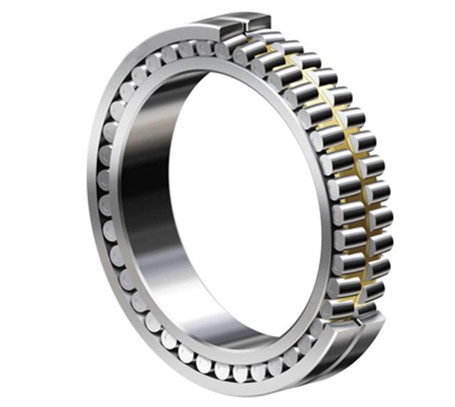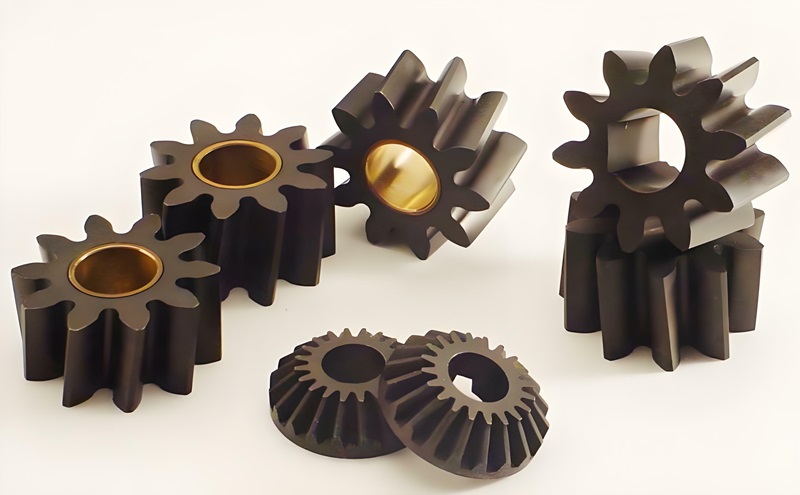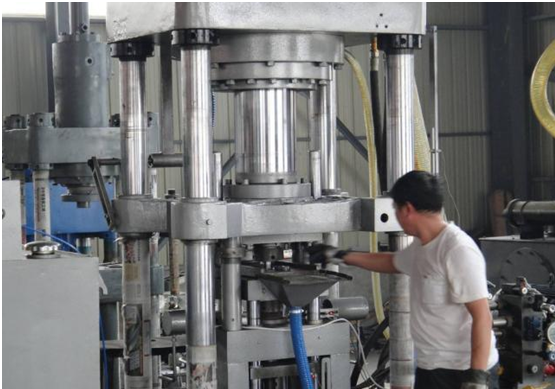
Introduction
In the manufacturing industry, powder metallurgy (PM) has become an essential process for producing high-quality gears. This technique involves compacting metal powders into desired shapes and then sintering them to create solid metal parts. While PM offers several advantages, it also has its disadvantages. This article will delve into the pros and cons of powder metallurgy gears, providing a comprehensive understanding for B2B purchasers.
Advantages of Powder Metallurgy Gears
Cost Efficiency
Material Utilization
One of the significant advantages of powder metallurgy gears is high material efficiency. Traditional machining methods often waste substantial amounts of material, whereas PM gears are created through near-net-shape manufacturing. This process involves minimal material wastage as metal powders are compacted into the desired shape from the outset. As a result, PM gears help reduce material costs, which is particularly beneficial when working with expensive metals.
Moreover, PM gears allow for the use of less expensive raw materials. The powdered metals can include a mix of different alloys that optimize performance while keeping costs low. This flexibility in material choice further enhances the cost-efficiency of the PM process.
Reduced Production Costs
The powder metallurgy process generally requires less energy compared to traditional forging or machining. This energy efficiency translates into lower production costs, making PM gears a cost-effective solution for many industries. Additionally, PM is ideal for high-volume production runs. The initial tooling costs are spread out over a large number of parts, reducing the cost per unit. This economy of scale is particularly advantageous for industries that require large quantities of gears, such as automotive and consumer electronics.
Design Flexibility
Complex Geometries
Powder metallurgy allows for the creation of complex shapes and fine details that would be challenging or impossible to achieve with conventional methods. The ability to produce intricate designs without extensive machining processes provides manufacturers with greater design freedom. This flexibility is crucial for applications that require precise and complex gear geometries, such as medical devices and aerospace components.
Furthermore, PM enables customization at a relatively low cost. Manufacturers can easily adjust the mold designs to produce custom gears tailored to specific applications. This adaptability makes PM an attractive option for industries that demand specialized gear designs.
Material Composition
Another notable advantage of powder metallurgy is the ability to blend different metal powders to achieve specific material properties. This alloying capability allows manufacturers to create gears with enhanced performance characteristics, such as improved wear resistance, higher strength, or better thermal conductivity. The precise control over material composition ensures that the gears meet the stringent requirements of various industries.
Additionally, PM allows for the creation of parts with graded compositions. By varying the material composition throughout the gear, manufacturers can optimize the properties of different sections, enhancing the overall performance of the gear. This capability is particularly beneficial for applications that require specific material characteristics in different areas of the gear.
Mechanical Properties
Uniform Density
Powder metallurgy gears typically exhibit uniform density, which ensures consistent mechanical properties. This uniformity is crucial for high-performance applications where reliable and predictable behavior is essential. The even distribution of material helps in reducing stress concentrations, enhancing the durability and longevity of the gears. Consistent mechanical properties are particularly important in industries such as automotive and aerospace, where gear reliability is critical.
Porosity Control
The PM process allows for the control of porosity levels, which can be beneficial in certain applications. For example, controlled porosity can help retain lubricants, reducing friction and wear in gears used in mechanical systems. Additionally, optimizing porosity levels can lead to weight reduction, which is advantageous in industries like aerospace where minimizing weight is crucial.
By carefully controlling the porosity, manufacturers can design PM gears to meet specific performance criteria, such as improved wear resistance or reduced friction. This ability to tailor the properties of the gears through porosity control is a significant advantage of the PM process.

Disadvantages of Powder Metallurgy Gears
Limited Material Choices
Material Restrictions
Despite its many advantages, powder metallurgy has some limitations, particularly regarding the range of materials that can be used. Not all metals are suitable for the PM process, especially those that require high sintering temperatures. High-temperature alloys, for example, may not be feasible for PM, restricting the choice of materials available for gear production. This limitation can be a significant drawback for applications that require specific high-performance materials.
Additionally, PM gears may not achieve the same mechanical strength as forged or machined gears made from the same materials. This potential difference in strength needs to be considered when selecting PM gears for high-stress applications.
Sintering Challenges
Achieving high dimensional accuracy with powder metallurgy can be challenging due to shrinkage during the sintering process. This shrinkage can lead to variations in the final dimensions of the gears, requiring additional post-processing to meet tight tolerances. In some cases, machining or grinding may be necessary to achieve the desired precision, adding to the overall production costs.
Furthermore, sintering challenges can impact the consistency of the mechanical properties of the gears. Variations in sintering conditions can lead to differences in density and porosity, affecting the performance and reliability of the gears.
Porosity Issues
Reduced Density
One of the intrinsic characteristics of powder metallurgy is porosity, which can weaken the material and limit its load-bearing capacity. The presence of pores within the gear structure can reduce the overall density and strength, making PM gears less suitable for high-load applications compared to fully dense forged or machined gears. This reduced density needs to be taken into account when designing gears for demanding environments.
Sealing Requirements
In some applications, the porosity of PM gears requires additional sealing processes to prevent the ingress of fluids. This is particularly important in applications where the gears are exposed to lubricants, chemicals, or other fluids that could penetrate the pores and cause damage. The need for additional sealing processes can add to production costs and complicate the manufacturing process.
Additionally, the rougher surface finish of PM gears compared to machined gears can increase friction and wear, potentially reducing the lifespan of the gear. Surface roughness may require additional finishing processes, such as polishing or coating, to achieve the desired smoothness and improve the gear’s performance.
Production Limitations
Scale and Size
Powder metallurgy is more suitable for smaller gears, and producing larger parts can present challenges related to uniform density and sintering. Larger PM gears may exhibit variations in density and mechanical properties, impacting their performance and reliability. This size limitation needs to be considered when selecting PM gears for specific applications.
Production Scalability
While PM is excellent for high-volume production, it may not be as cost-effective for low-volume or custom orders. The initial setup and tooling costs can be relatively high, making PM less attractive for small-scale production. Additionally, frequent design changes can be challenging and costly, limiting the flexibility of the PM process for custom or low-volume production runs.

Powder metallurgy (PM) is a highly effective method for producing gears with intricate designs and tailored material properties. Its key strengths include high material efficiency, reduced production costs, and the ability to create complex geometries. These advantages make PM an ideal choice for industries requiring precise and high-volume gear production. The uniform density and controlled porosity of PM gears further enhance their mechanical properties and reliability.
However, the technology does have its limitations. The range of suitable materials is somewhat restricted, and the inherent porosity can impact the material’s load-bearing capacity. Achieving high dimensional accuracy can be challenging, and the process might not be as cost-effective for low-volume or custom orders.
By understanding the strengths and limitations of powder metallurgy gears, purchasers can make informed decisions that align with their specific needs. This balanced approach ensures optimal performance, cost-efficiency, and reliability in gear applications, allowing businesses to leverage the full potential of PM technology.
More Resource
Here are the top 5 powder metallurgy gear manufacturers:
- JHMIM Group.
JHMIM Group Sintering is mentioned as one of the best powder metallurgy gear manufacturers in 2023 in China. - GKN Powder Metallurgy Engineering GMBH
GKN is a leading manufacturer of atomized metal powders and precision powder metal products, including gears. They have a global presence with 29 manufacturing sites in 10 countries. - Höganäs AB
Höganäs is a global leader in metal powder solutions, including powders used for gear manufacturing. They have over 2,400 employees and 17 production centers worldwide. - PSP (Powder Solutions and Parts)
PSP has been a leader in small, intricate custom powdered metal parts since 1967, serving various industries including industrial equipment. - Clarion Sintered Metals
Founded in 1947, Clarion Sintered Metals is a trusted source for powdered metal parts, including gears. They offer design assistance and manufacturing of precision, cost-effective parts and component.
These companies are recognized for their expertise in powder metallurgy and gear manufacturing, offering a range of capabilities and serving various industries. It’s worth noting that rankings can vary depending on specific criteria and may change over time.


